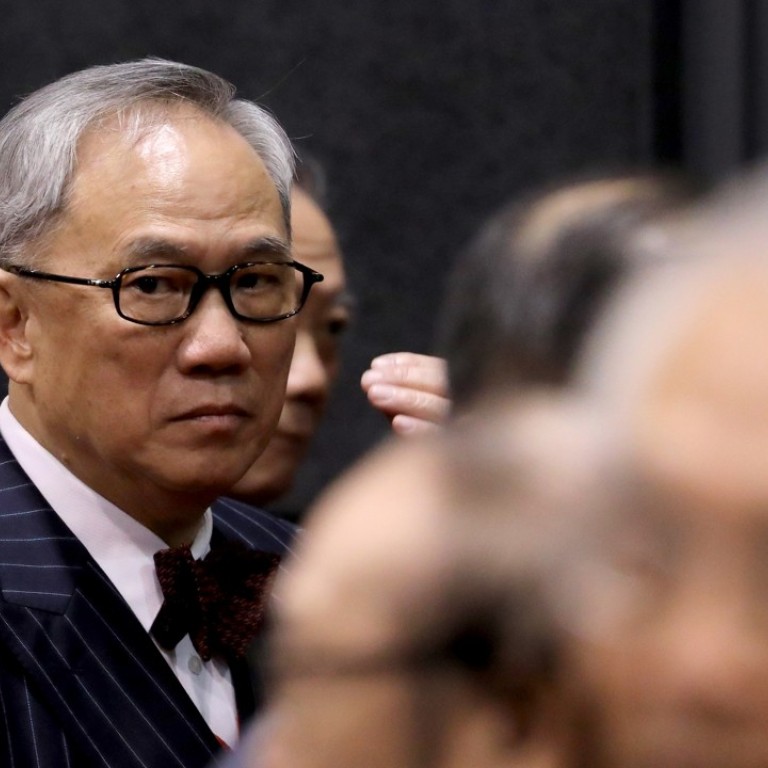Advertisement
Advertisement

Why disgraced Hong Kong chief Donald Tsang may have fared better without a jury
With reference to Chris Lau’s article, (“High Court judge slams use of ‘undesirable’ PR tactics during Donald Tsang bribery hearing”, March 6), it should be noted that the judge’s observations on the “public relations tactics” did not form part of the reason for his ordering Donald Tsang Yam-kuen to pay one-third of the prosecution’s costs for his misconduct hearings last year (estimated at HK$13.7 million).
The comment was included in the judgment apparently as a forewarning that, in future, if any defendant were to apply for the court’s permission to reserve seats for relatives and friends to observe a jury trial, the court would critically examine the reasons for the application and the likely effect on the jurors.
Mr Justice Andrew Chan Hing-wai’s concluding comment that “this serves as a warning to all public relation firms or consultant” suggests strongly that there could be legal sanctions in case any such firm or consultant were found to be deploying “PR tactics” with a view to influencing the jury.
A timeline of Donald Tsang’s legal journey
In Hong Kong, for such an uncertain offence as “misconduct in public office” (a common law offence which the UK Law Commission is considering whether to abolish owing to the offence’s vagueness), there is a better chance for a defendant to receive a fair trial if the trial is before a single judge without jury. This is because judges are obliged to give reasons for their verdicts. Juries are not.
Donald Tsang case raises questions over judicial system
The concept (or misconception) of “government-business collusion” is so deeply ingrained in ordinary citizens’ minds that there are doubts whether jurors can, objectively, appreciate the fine legal principles involved and evaluate the available evidence. Based on the evidence reported in the press, I do believe that Tsang – and, for that matter, also Thomas Kwok Ping-kong and his associates in Raphael Hui Si-yan’s case – would have stood a good chance of acquittal if they had been tried by a single judge who is obliged to give reasons.
Ng Hon Wah, Pok Fu Lam
This article appeared in the South China Morning Post print edition as: A single judge, not a jury, may have seen Donald Tsang fare better in misconduct trial

Post
